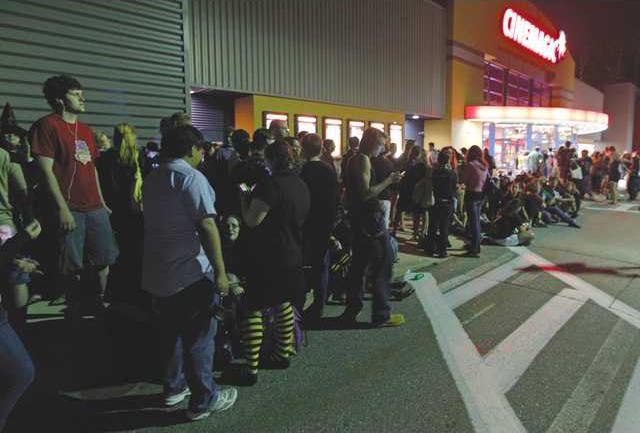The Year 2011 is more than half over, and the state of the movies is just as troubling as the state of the union.
As of the end of June, overall 2011 box office sales were down 8 percent compared to the midpoint of 2010 according to boxofficemojo.com, a trusted source. This isn't surprising to those of us who have subjected ourselves to the parade of mediocrity at the multiplex this year.
Spring actually offered several nice surprises. Too bad almost no one noticed. "Hanna," "Source Code," "Rango," "The Adjustment Bureau," "Paul" and "Rio" were all highly enjoyable, if flawed, movies.
But we have no choice but to declare the summer season a disappointment.
June usually boosts the annual box office numbers, but it totaled 5 percent less than June 2010. July would be a similar failure if not for "Transformers: Dark of the Moon" and "Harry Potter and the Deathly Hallows, Part II." The final Potter movie is rewriting the record books as we speak.
Otherwise, though, we've had almost no mainstream movies to get excited about, nor have those movies made the kind of money studios need from their tentpole releases.
Thus begins the questioning among Hollywood producers and industry experts: Why is the box office down this year?
Is it the bad economy? Not likely. The movies have always prospered during times of economic and political crisis, including the Depression and World War II. People look to Hollywood for escapism when things are bad.
Is it competition from television, video games and Internet content? To this, I give a sarcastic "boo hoo." Every industry faces competition. Successful businesses don't whine about it; they strive to do better.
Are people cooling toward comic book adaptations and superheroes? This genre is, indeed, oversaturated. We get a new superhero movie nearly each week, and it turns off some people. But Americans have loved superheroes for decades, and I doubt that has changed.
Is 3-D not the savior we hoped it would be? Studios and theatres don't want to hear this, but the answer to that question is a resounding, "Yes!"
At this point, audiences have voiced their indifference toward 3-D. The technology was new in 2010 and did sell tickets. When movies were released in 2010 in both 2-D and 3-D, more than half of the films' viewers chose 3-D.
But the novelty is gone and so is much of the demand. "Kung Fu Panda 2," the fourth Pirates of the Caribbean, "Green Lantern," and "Cars 2" were all released in both formats, and in each case only around 40 percent of all the people who saw the movie chose to see it in 3-D.
3-D in itself is clearly not a draw.
It also creates a host of technical problems. Roger Ebert and other influential voices have begun a virtual campaign to publicize how poor the visual quality of 3-D is. For starters, some 3-D projectors reduce the overall illumination of the image by 50 percent.
A movie is nothing but light and sound, so if you are underwhelmed by the look of the new 3-D process, it's because you are literally only seeing half of the light you are supposed to.
The problem is, studio heads and theatre owners aren't questioning 3-D. They have an enormous financial stake in the format, and at this point they are stuck in a willful state of denial.
The solution, of course, is incredibly simple. I'm reminded of the famous political saying, "It's the economy, stupid." For movie producers, the equivalent is, "It's the stories, stupid." Or maybe, "It's the stupid stories."
Want to know why a higher percentage of moviegoers are paying for the 3-D version of the Harry Potter finale? It's a good story with interesting characters we like.
Give us better movies, and we will return.
Jeff Marker is a media studies professor at Gainesville State College.

